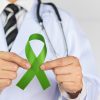As awareness of healthy eating grows, people are increasingly concerned about their diets, questioning whether they are consuming the right types of food and seeking to avoid or minimise foods that may increase their risk of cancer. Let’s examine several common items that we frequently come into contact with and may even consume as part of our diet.
Sugary Drinks [1]
Research has strongly linked sugary drinks to disease burdens. Excessive sugar consumption in daily diets can lead to weight gain, a precursor for chronic diseases like type 2 diabetes, cardiovascular disease, and various cancers.
Chazelas et al. suggest that a 100ml/day increase in consumption of sugary drinks was linked to:
- 18% increased risk of overall cancer
- 22% increased risk of breast cancer
For consumption of 100% fruit juices (no added sugar), a 100ml/day increase in consumption was also linked to:
- 12% increased risk of overall cancer
Ultra-processed food (UPF) [2]
The NOVA system categorises processed foods into four groups: unprocessed or minimally processed, processed culinary ingredients, processed foods, and ultra-processed foods. Ultra-processed foods often contain additives like colorants, emulsifiers, bulking agents, thickeners, flavor enhancers, and sweeteners to extend shelf life, reduce costs, and enhance palatability. Studies indicate that high consumption of ultra-processed foods is associated with a 10% increased risk of overall cancer, particularly colorectal, breast, and pancreatic cancers. Studies have also linked their consumption to chronic lymphocytic leukemia and central nervous system tumors. Examples of ultra-processed foods include ham, sausages, chicken nuggets, soft drinks, candy, margarine, breakfast cereals, reconstituted plant-based products, and factory-made breads and baked goods.
Saturated Fats (SFA) [3]
Diets high in saturated fats, found in sources like animal fat, poultry skin, lard, butter, ghee, coconut oil, and palm kernel oil, contribute to obesity, a factor that may increase cancer risk. Excessive intake of high-fat foods can reduce anti-tumor activity and accelerate tumor growth. For instance, high red meat consumption is linked to several cancers, particularly colorectal cancer. A significant correlation exists between high saturated fat intake and cancers such as prostate, breast, pancreatic, ovarian, and colorectal cancer.
Monounsaturated fats (MUFA) [4]
Monounsaturated fats (MUFA) are known for their heart health benefits, and studies suggest they also have positive effects on cancer cells, including suppressing growth and survival and decreasing cancer mortality. Olive oil is rich in MUFA and easily incorporated into daily diets. Other good sources include avocado, almonds, cashews, hazelnuts, macadamias, peanuts, pecans, pistachios, pumpkin seeds, and sesame seeds.
Polyunsaturated fats (PUFA) [4]
Intake of PUFAs, specifically omega-6 fatty acids, can be obtained from food sources such as walnuts, pumpkin seeds, sunflower seeds, chia seeds, flaxseeds, and fatty fish.
Eliminating sugary foods, saturated fats, and especially ultra-processed convenient foods can be challenging. However, gradual reduction is a practical approach. We can become more mindful of our food choices, prioritising nutrient-rich options like monounsaturated and polyunsaturated fats. While beneficial, all fats should be consumed in moderation to avoid other health issues. Therefore, moderation is key!
Reference list
-
Chazelas E, Srour B, Desmetz E, Kesse-Guyot E, Julia C, Deschamps V, et al. Sugary drink consumption and risk of cancer: results from NutriNet-Santé prospective cohort. BMJ [Internet]. 2019 Jul 10 [cited 2019 Jul 27];l2408. Available from: https://www.bmj.com/content/bmj/366/bmj.l2408.full.pdf
-
Isaksen IM, Dankel SN. Ultra-processed food consumption and cancer risk: a systematic review and meta-analysis. Clinical Nutrition [Internet]. 2023 Mar;42(6). Available from: https://pubmed.ncbi.nlm.nih.gov/37087831/
-
Mei J, Qian M, Hou Y, Liang M, Chen Y, Wang C, et al. Association of saturated fatty acids with cancer risk: a systematic review and meta-analysis. Lipids in Health and Disease. 2024 Jan 30;23(1).
-
Bojková B, Winklewski PJ, Wszedybyl-Winklewska M. Dietary Fat and Cancer—Which Is Good, Which Is Bad, and the Body of Evidence. International Journal of Molecular Sciences [Internet]. 2020 Jun 9;21(11):4114. Available from: https://www.ncbi.nlm.nih.gov/pmc/articles/PMC7312362/






